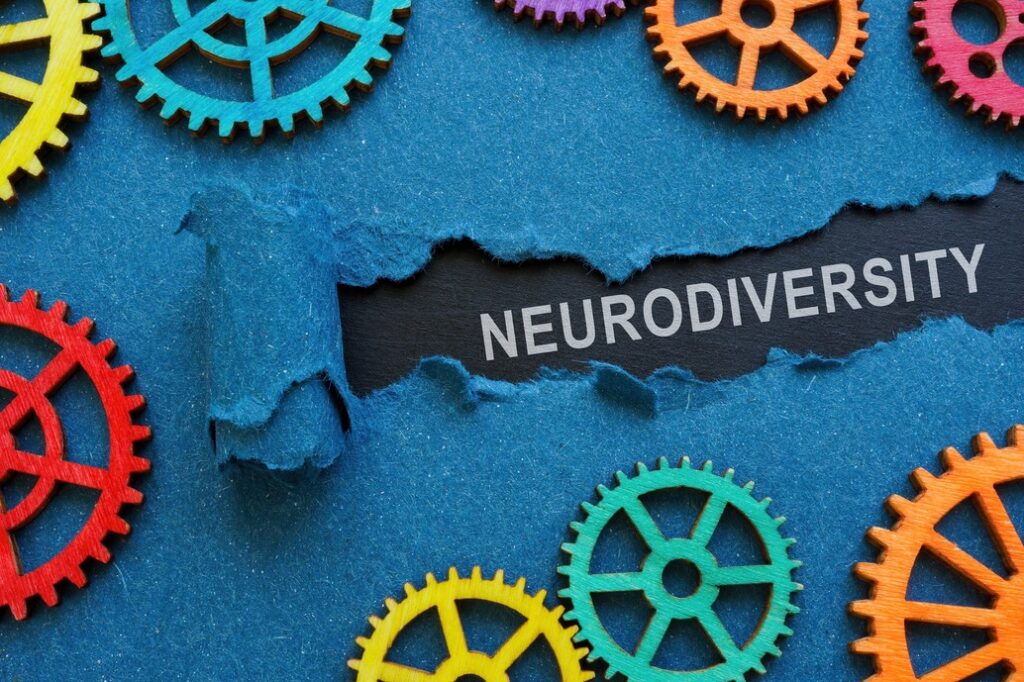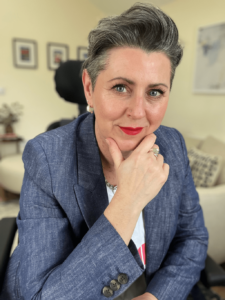April can be quite the month for us neurodivergent lot – Autism Awareness Day gets the world chatting about inclusion and empathy. But what happens when the flashy worlds of awareness campaigns collide with the real-life journey of a neurodivergent explorer?
As someone deeply involved with disability and neurodiversity, I thought I’d chat today about a recent, raw experience – from heart-pounding anxiety to sweet relief. My tale twists and turns yet, I reckon finishes on an empowering note.

Trains can be both a hurdle and a sanctuary for many of us neurodivergent folks. I find the constant hum of noise and chatter amidst the gentle swaying can sometimes be a bit much. Nevertheless, they’re also prime spots where I can let my mind roam, catch up on some work or my latest telly boxset, or simply soak in the beauty of the passing scenery.
Before stumbling upon Transreport’s Passenger Assistance app, train travel could easily be a nightmare for me. The dread of not being able to hop on a train with my wheelchair would flood me with anxiety. As a full-time wheelchair user, I now routinely use the Passenger Assistance app for all my train journeys. But a recent hop into London for an event highlighted that this tool can be helpful for logistical and emotional access needs, as well as physical – something I hadn’t previously considered.
On that evening, I had expended a fair amount of emotional stamina to combat social anxiety that nearly derailed – pardon the pun – my evening before it even started. After using the app to request my usual assistance of a ramp and wheelchair spot for my train into Paddington, I settled in for the journey. I used the time to collect myself, hoping for a sense of calm to wash over me as I approached the station.
I then rolled through London using the tube, admiring the step-free access at the stations. Although, figuring out the elaborate lift systems was like cracking the DaVinci code – it’s almost like you need a PhD just to understand those diagrams!
Picture then, the dread that seizes me when I realise that I’d forgotten to check the final address for the event – thanks ADHD brain – and I’d arrived at the wrong station. There I sat, surrounded by the chaotic amalgamation of sights and sounds of a Friday night in central London, hurtling full throttle into meltdown.
To some it might appear a tiny mishap, but I felt lost – both spatially and in society. Anxiety loomed as the truth dawned and I realised what had happened. I sat frozen by my error, staring blankly at the ticket barrier in the station.
My ADHD brain was having a really tough day. I found it incredibly difficult to decipher the train maps or figure out how to reach the right platform. The complexity of the situation felt overwhelming, making it hard to focus or function at all.
Fear, fatigue, and a sense of surrender threatened to swallow me, making me contemplate throwing in the towel and heading back home. As I was sitting there feeling lost and unsure of what to do next, I felt relieved when the station staff saw I needed help. They kindly offered to help me locate the right train to reach my destination.
When using the Passenger Assistance app, I used to request only a ramp and wheelchair space. Now, I understand I can ask for more assistance for access needs that may not be related to mobility, such as finding the platform and my train, as well as finding a seat. The app accommodates a wide range of access needs, and you can create a profile to save yours for future journeys, which I find helpful with ADHD and cognitive difficulties, making life just that little bit easier.
That night could have gone one of two ways. But instead of feeling more intimidated, it actually increased my confidence for solo travel. What could have sent me scurrying home, anxious and defeated, instead increased my capabilities. No one becomes a success story in this world without some help along the way! That night, faced with a pivotal decision – retreat or persevere – I decided to steam ahead. And I’m so glad that I pressed on with my journey because I had a fabulous night, connecting with some wonderful humans and engaging in important conversations.
As I share this tale of victory with you, I hope the butterfly effect will open your world simply by reading it. Society frequently shows us disabled and/or neurodivergent lot as fragile and deserving of pity. I refute these clichés and hope to show that divergence or disability can be a marvellous, life-enhancing part of us, not a tragedy. We simply require the right support to enable us to wring every ounce of joy out of the world we live in.
I definitely recommend using the Passenger Assistance app for your travels. I love that you can input your individual access needs and I personally find this enriches my experience, giving me more confidence to explore the world. You can download the app to request your assistance, or to find more information, you can visit the following link: https://shorturl.at/yBFQ7
About the Author
“In 2019, life changed when I faced a sudden change in my disability and became a full-time wheelchair user. After a short period battling my situation, instead of fading away, I chose to embrace my new reality. Now, I advocate for inclusivity and acceptance. I’m proud to promote self-confidence, leading discussions on empowerment on shows like This Morning and platforms like BBC Radio and London Fashion Week. My goal is to celebrate uniqueness and empower everyone to confidently take their place in the world.”

Sandie Roberts